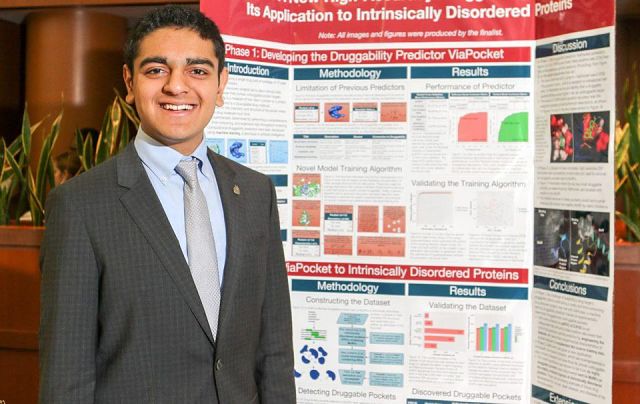 An impressive 83 percent (33 of 40) of the finalists of the 2016 Intel Science Talent Search, the leading science competition for U.S. high school students, were the children of immigrants, according to a new study by the National Foundation for American Policy. (Photo: Society for Science & the Public)
An impressive 83 percent (33 of 40) of the finalists of the 2016 Intel Science Talent Search, the leading science competition for U.S. high school students, were the children of immigrants, according to a new study by the National Foundation for American Policy. (Photo: Society for Science & the Public)
What would we lose if immigrants could no longer come to America? Surprisingly, one of the most important things America would lose is the contributions made by their children.
A new study from the National Foundation for American Policy found a remarkable 83% (33 of 40) of the finalists of the 2016 Intel Science Talent Search were the children of immigrants. The competition organized each year by the Society for Science & the Public is the leading science competition for U.S. high school students. In 2017, the talent search competition was renamed the Regeneron Science Talent Search, after its new sponsor Regeneron Pharmaceuticals,and a new group of 40 finalists – America’s next generation of scientists, engineers and mathematicians – are competing in Washington, D.C., from March 9 to 15, 2017.
Both family-based and employment-based immigrants were parents of finalists in 2016. In fact, 75% – 30 out of 40 – of the finalists had parents who worked in America on H-1B visas and later became green card holders and U.S. citizens. That compares to seven children who had both parents born in the United States.
To put that in perspective, even though former H-1B visa holders represent less than 1% of the U.S. population, they were four times more likely to have a child as a finalist in the 2016 Intel Science Talent Search than were parents who were both born in the United States.
Parents who were international students were more likely to have a child as a finalist than native-born parents. A total of 27 of the 40 children – 68% – had a parent who came to America as an international student. That means if international students cannot remain in America after graduation (through Optional Practical Training and improved visa policies) it will also deprive America of the potentially substantial contributions of their children.
—
Join the conversation on Twitter and Facebook

























